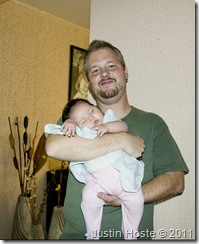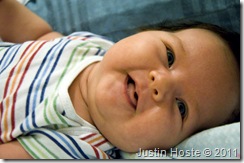Oftentimes I’ve thought about how privileged I am to be in a world between worlds – to be someone who can move with some ease between two countries, two cultures, and to a certain extent, two realities. I am often surprised, and sometimes taken off guard, by the values that clash between these two places that I now call home. If I’m not mindful of the transition that takes place when I get on and off the plane it can even lead to painful experiences as people don’t know how to interpret what I do, or I forget to interpret what they do in the context of their own culture. An example of this would be the “personal space” issue. In Mexico it just doesn’t exist. And while it is sometimes something that can be a point of tension for me (me being somewhat introverted), when I get to the U.S. it sometimes takes me awhile to figure out why the person I care deeply about keeps moving away from me. All the while I keep moving closer!
Related to this issue is an article I just read that speaks about third culture kids (TCK’s). (Article: MIN WEIN INTA?)These are children who are born to expatriate parents, but live in another culture. Not fully fitting into neither their parents’ culture nor their host culture, they have their own culture. This leads to identity issues. As I think about my daughter I realize that the issue will be different and maybe even more complicated by the fact that she will have two cultures at home as well. Does this make her a fourth culture kid? I have often times thought of Sophie and how “well-rounded” or “well-adjusted” she is going to be. But, according to this article these may be merely whimsical thoughts!
As I think of the responsibility that I have as a parent to help Sophie through this issue, I truly hope that God gives me much wisdom. I would love to find answers to the problem this poses and plan to pick missionaries’ minds on the issue.
One possible solution comes to mind even now. Perhaps Sophie, as a TCK will have the benefit of knowing exactly where she is from. Oftentimes we make the mistake of putting too much stock in our world. We grasp and hold on to our material wealth or our little piece of land or our country. We should love our country. But we shouldn’t forget where we truly come from. The Bible explains the fact that this world is not our home. We are just passing through. Hebrews highlights the fact that we are strangers and exiles here. Hebrews 11:13 (ESV) speaking of wonderful examples who have gone before us states: These all died in faith, not having received the things promised, but having seen them and greeted them from afar, and having acknowledged that they were strangers and exiles on the earth. [1] There is another verse that I love that states the case directly. Philippians 3:20 (ESV): But our citizenship is in heaven, and from it we await a Savior, the Lord Jesus Christ. [2] Isn’t that great? If we are followers of Christ, we are first and foremost citizens of heaven, then citizens of our country. That means that the Christian from another land is more my brother than the non-Christian in my home or next door.
Our prayer for Sophie is that she will know her Savior at a young age. As a result, she will know exactly who she is and where she’s from. Hebrews again says in 11:10 (ESV): For he was looking forward to the city that has foundations, whose designer and builder is God. [3] Let us all remember who we are, where we’re from, and where we’re going.
[1], [2], [3] The Holy Bible : English Standard Version. Wheaton : Standard Bible Society, 2001


